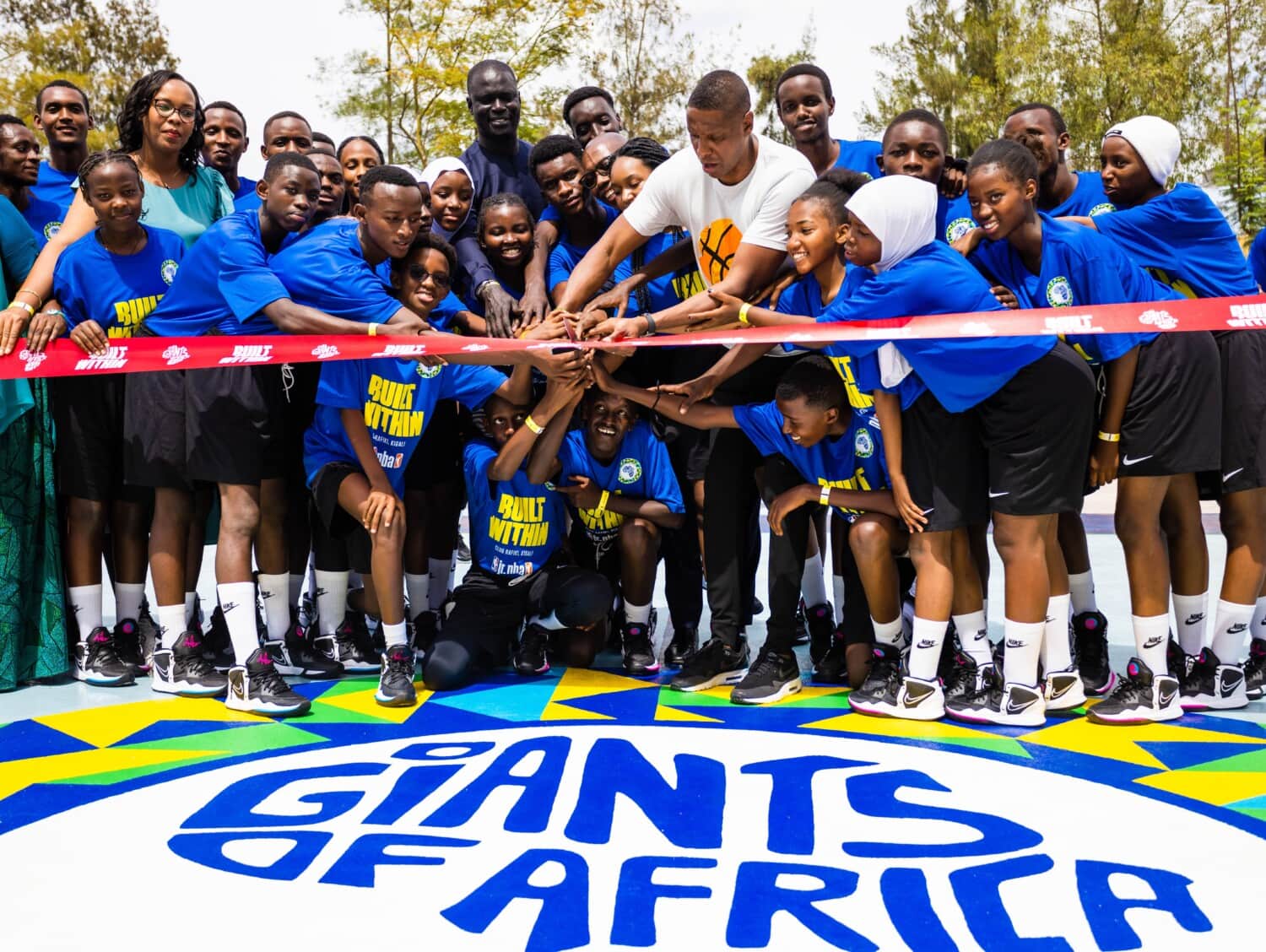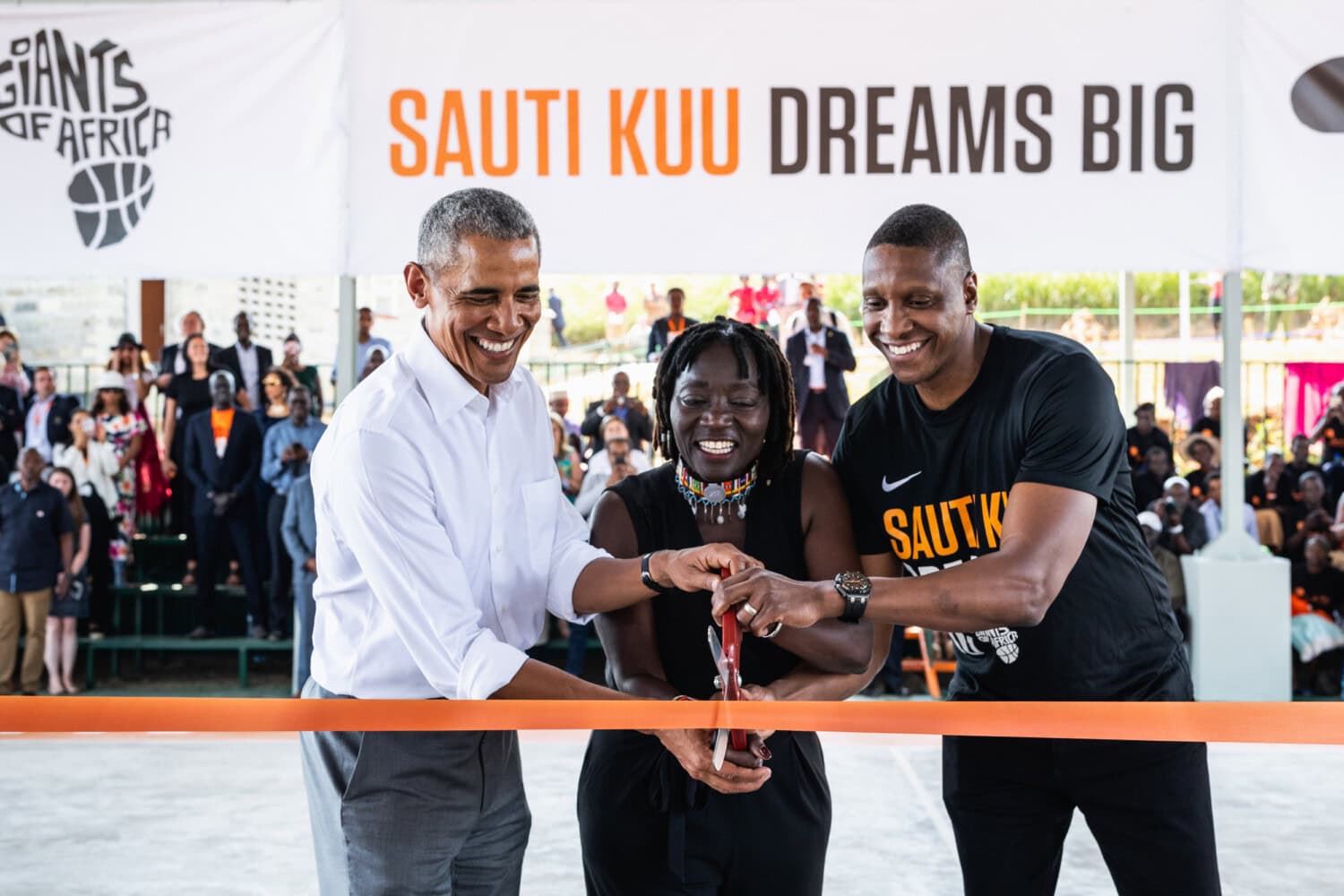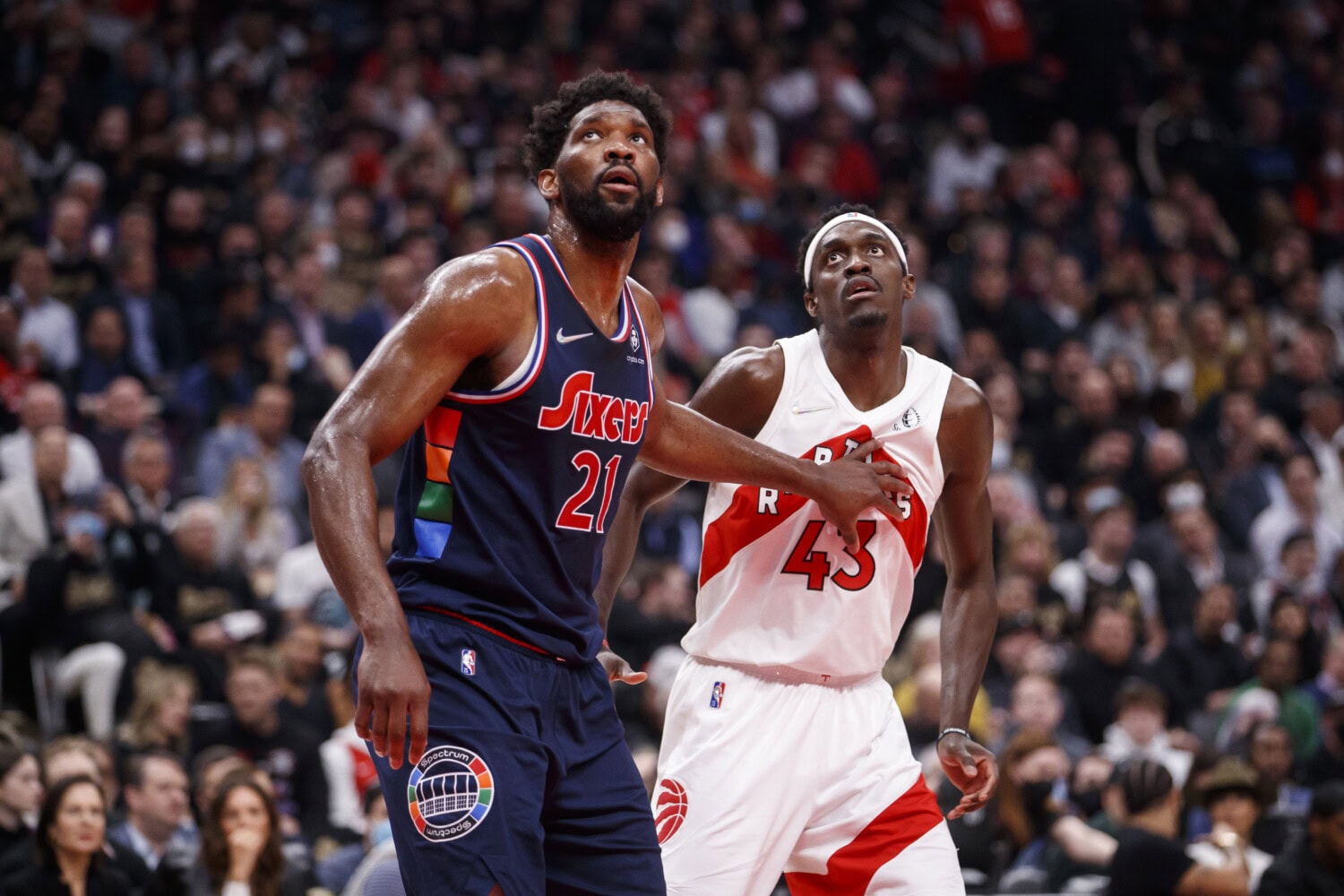Masai Ujiri discusses the Giants of Africa festival, along with his contributions to the evolution of African basketball over the last 22 years.
There are few executives who have defined the NBA in the 21st century more than Masai Ujiri.
When the Denver Nuggets hired him as general manager in 2010, he became the first-ever African executive in that role in the history of major North American professional sports. When he won the NBA’s Executive of the Year award in 2013, Ujiri became the first and still only non-American to ever earn the honor. He moved to the Toronto Raptors that year in the same role, building a consistent playoff team before constructing the roster that won the franchise’s first and only NBA championship in 2019. Ujiri and the team parted ways last month, ending a partnership that will forever be part of NBA and Canadian basketball lore.
While those accomplishments would make for an incredible resume on its own, Ujiri’s work and efforts in Africa are what make the 55-year-old Nigerian a transformational figure in the history of basketball. He founded the Giants of Africa foundation in 2003 with the goal of not only discovering basketball talent on the continent, but also utilizing the sport to enrich the lives of African boys and girls and help them reach their full potential through teaching basic life skills such as honesty, punctuality, and respect. Ujiri has served as a major leader in developing the NBA and FIBA‘s Basketball Without Borders program in Africa and was a key advisor in the creation of the Basketball Africa League (BAL) in 2021, sitting on the board of NBA Africa. Giants of Africa has conducted camps and clinics for tens of thousands of youth in 20 different countries, building nearly 40 new basketball courts all across the continent, including in tough communities, refugee camps, and slums that need improved infrastructure to grow and thrive.

After putting on a festival two years ago to mark the foundation’s 20th anniversary, Saturday marks the start of the second-ever Giants of Africa Festival in Kigali, Rwanda, running through Aug. 2. It will feature 320 young men and women participating in basketball camps and clinics, a Threads of Africa fashion show, an International Youth Day forum bringing together more than 2,000 Rwandan youth and festival campers, a community court unveiling, and unity and network building. Olympic-style opening and closing ceremonies in front of an estimated 20,000 spectators will feature performances by artists like Ayra Starr and Timaya as well as appearances by celebrities including Candace Parker, Kawhi Leonard, Chris Tucker, Robin Roberts, Didier Drogba, and Chiney Ogwumike. The festival signifies an extension of everything Giants of Africa wants to accomplish on a daily basis.
“We’re talking about Africa and people who see Africa sometimes as a country instead of a continent,” Ujiri told Boardroom last month in a visit to our New York City office. “We want to create a borderless Africa, opening it up to more interaction through youth, business, sports, entertainment, culture, food, and bringing these youth from all over Africa to come spend time together while celebrating all these things.”
Subscribe for the biggest stories in the business of sports and entertainment, daily.
Ujiri still remembers the inaugural festival two years ago, when 14,000 spectators cheered as Tyla and Davido performed after so much planning and effort came to fruition. The 2023 event generated $1.5 million invested into the local economy of Kigali.
“I really didn’t know it was going to be that big,” he said. “I’d never done a concert or an opening ceremony before. But we showed this ecosystem has been developed and continues to develop all around the continent. Davido and Tyla gave this energy because they were youth on the continent also. They grew up there, and they feel it. It was incredible and it inspired us to do another one.”
What started as a passion project and a dream 22 years ago, when Ujiri was a Nuggets scout, has evolved into something much bigger, driven not only by sheer effort and will as he rose up the NBA and global basketball ladder. But thanks to inspirational figures, past and present, who helped Masai along the way. That includes his parents, wife, and children, but also African political icons like Nelson Mandela, Kwame Nkrumah, and Thomas Sankara, and mentors and friends like longtime Raptors executive Wayne Embry, President Barack Obama, Rwandan President Paul Kagame, former American Express CEO Ken Chenault, and NBA Commissioner Adam Silver. These are people, Ujiri said, who see him in a different way and helped him see the world differently, guiding, motivating, and inspiring him as his career progressed.

When asked what he thinks Silver learned from him as the NBA embraced yearly camps and clinics in Africa before they put so many resources into getting BAL off the ground, Ujiri replied, “probably nothing. But I am so glad that Adam would always take the journey to Africa and really open his mind to it. It’s really been inspirational how he’s seen the league and helped us with many things that we do over here.”
The progress basketball has made on the continent since Ujiri launched Giants of Africa in 2003 has been nothing short of revolutionary. Philadelphia 76ers big man Joel Embiid only started playing basketball at age 15 in Cameroon, but was discovered at a camp run by Luc Mbah a Moute, an African-born former NBA player. Less than 15 years later, Embiid amazingly won NBA MVP by taking the path Ujiri built upon, one that wouldn’t have been available without the likes of Hakeem Olajuwon, Dikembe Mutombo, and Manute Bol.
Pascal Siakam was another player at Mbah a Moute’s camp who didn’t really pick up basketball until he was 15 after feeling uninspired by educational training to become a Catholic priest. Ujiri brought the Cameroonian to the Raptors with the 27th pick of the 2016 draft, helping Toronto win its NBA title three years later. Siakam is now a three-time All-Star with the Indiana Pacers and was the MVP of the most recent Eastern Conference Finals. And while Embiid and Siakam accomplished incredible things while playing Ujiri’s Raptors opponents, he still takes immense pride in their on-court accomplishments.
“It almost overwhelms you because I saw them as youth kids sitting on the court at Basketball Without Borders,” Ujiri said. “And you look at them doing these things and you love it for them. You love it for everything they do for the continent, for their families, and for the game in general.”

Just over 10 years after joining FIBA, general manager Luol Deng and head coach Royal Ivey helped South Sudan qualify for the 2024 Olympics in Paris, where the Bright Stars defeated Puerto Rico in one of their group stage games. Then, a record-tying 17 African-born players started the NBA season on rosters last season. And one of those players on the South Sudanese Olympic squad, 7-foot-2 Duke center Khaman Maluach, was drafted 10th overall in June by the Phoenix Suns as Africa now reliably churns out blue-chip NBA prospects.
The development of basketball in Africa has been a combined, intertwined effort, Ujiri said, between Giants of Africa, NBA Africa, the SEED Academy in Senegal, Basketball Without Borders, the BAL, and other organizations growing the grassroots levels of the sport across the continent. Yet despite all this progress over the last 22 years, Ujiri knows there’s so much work to be done.
“We have to continue to inspire these youth because there’s so much talent in Africa,” Ujiri said. “There’s so much talent around the world, and we have to create the path for the next guys to continue to let this game grow.”
Just over three weeks after our conversation, Ujiri and the Raptors parted ways after a 12-year tenure that will go down in history as one of the most successful in the league this century. In a video tribute to Toronto posted on the Giants of Africa YouTube page, Ujiri told Raptors fans that the bond they share will last forever. He vowed to continue “my commitment to the game of basketball across the globe, wherever it takes me.”
For the next week, that will take Ujiri to Africa, where it all began and where it will continue as a visionary pioneer inspiring and developing the next generation of NBA and WNBA stars, helping build the courts, spaces, and arenas where they’ll sharpen their skills as players and human beings.
“These youth inspire me, and that inspiration makes the next 20 years more of a challenge for me and what I should be doing to make this youth movement even bigger and better,” Ujiri said. “And so I’m blessed and I’m humbled by the opportunity. People have shown me a lending, helping hand sometimes, and I owe it back to all these youth that I should do the same for them.”
This Giants of Africa Festival will serve as Ujiri’s ultimate love letter to the continent. It’s one of the many ways he’s paying it forward, signifying a major step in inspiring and empowering the next generation of youth, the next Embiid or Siakam, across the continent — one festival, one game, one camp, and one new court at a time.